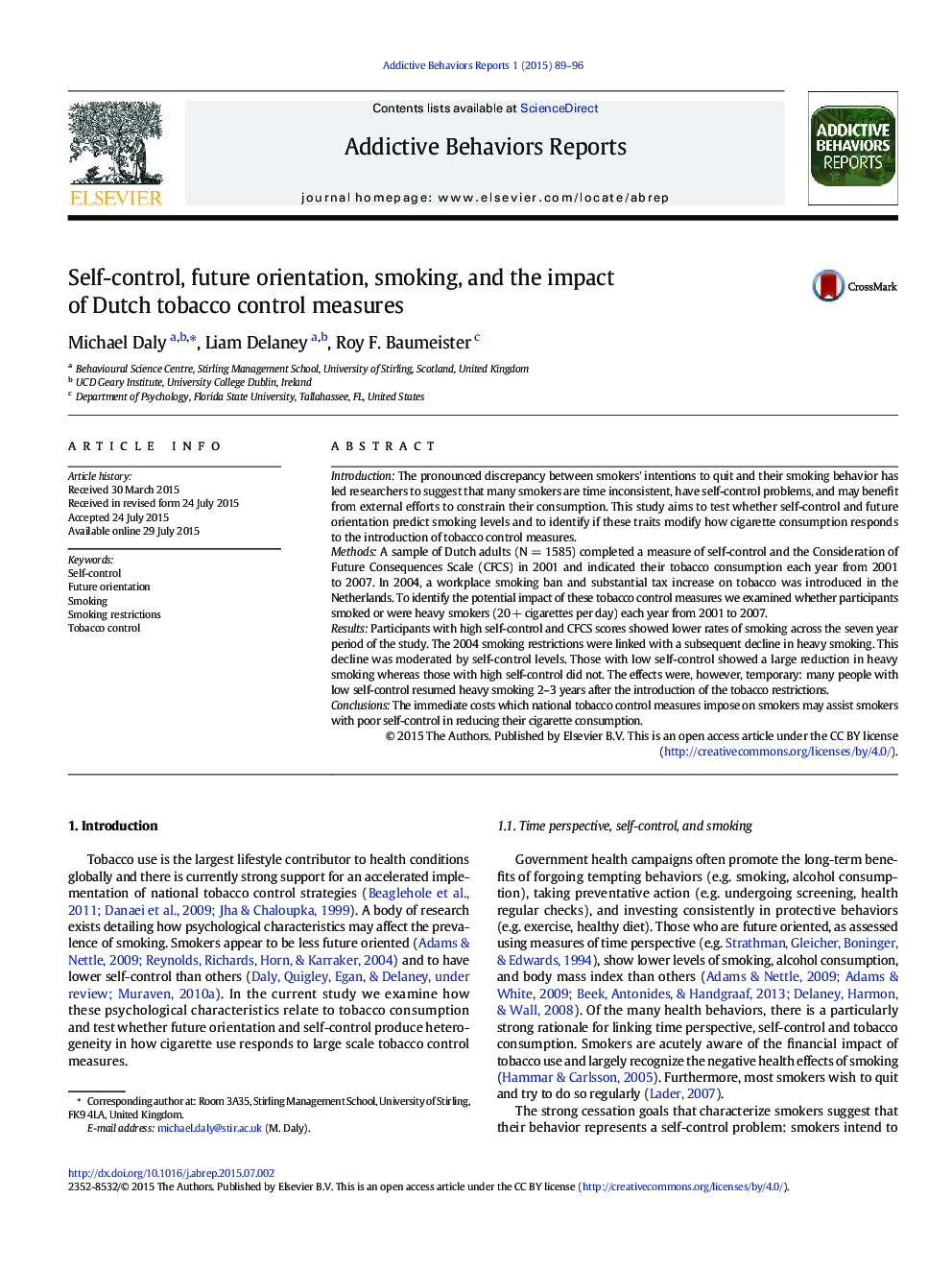| کد مقاله | کد نشریه | سال انتشار | مقاله انگلیسی | نسخه تمام متن |
|---|---|---|---|---|
| 900766 | 1472542 | 2015 | 8 صفحه PDF | دانلود رایگان |
• Shows that self-controlled and future orientated adults have a low rate of current smoking
• Links major 2004 Dutch tobacco control measures to a reduction in heavy smoking
• Demonstrates that this reduction in heavy smoking was greatest for the less self-controlled
IntroductionThe pronounced discrepancy between smokers' intentions to quit and their smoking behavior has led researchers to suggest that many smokers are time inconsistent, have self-control problems, and may benefit from external efforts to constrain their consumption. This study aims to test whether self-control and future orientation predict smoking levels and to identify if these traits modify how cigarette consumption responds to the introduction of tobacco control measures.MethodsA sample of Dutch adults (N = 1585) completed a measure of self-control and the Consideration of Future Consequences Scale (CFCS) in 2001 and indicated their tobacco consumption each year from 2001 to 2007. In 2004, a workplace smoking ban and substantial tax increase on tobacco was introduced in the Netherlands. To identify the potential impact of these tobacco control measures we examined whether participants smoked or were heavy smokers (20 + cigarettes per day) each year from 2001 to 2007.ResultsParticipants with high self-control and CFCS scores showed lower rates of smoking across the seven year period of the study. The 2004 smoking restrictions were linked with a subsequent decline in heavy smoking. This decline was moderated by self-control levels. Those with low self-control showed a large reduction in heavy smoking whereas those with high self-control did not. The effects were, however, temporary: many people with low self-control resumed heavy smoking 2–3 years after the introduction of the tobacco restrictions.ConclusionsThe immediate costs which national tobacco control measures impose on smokers may assist smokers with poor self-control in reducing their cigarette consumption.
Journal: Addictive Behaviors Reports - Volume 1, June 2015, Pages 89–96
